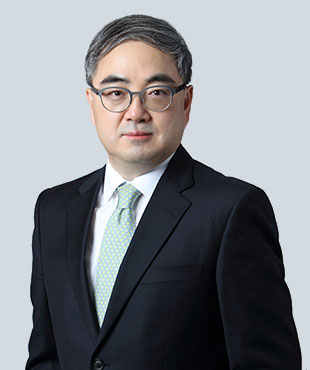Find out more about our latest publications
Research Series 15-01 Apr. 27, 2015
- Research Topic Capital Markets
- Page 250
The Korean derivatives market has achieved remarkable growth since the listing of the KOSPI200 futures in 1996. After the global financial crisis of 2008, it lost much of its trust and reputation among investors and the media due to several market scandals. In addition, the possibility of “wag-the-dog” with respect to the derivatives market has persisted. According to this empirical study, however, it is actually hard to find clear evidence that the derivatives market made a meaningful impact on the stock market. Although the expiration day effect has been observed in part, it seems unrelated to the derivatives market’s excessive size. Rather, this suggests the need to improve the market’s micro-institutional structure.
Meanwhile, in the KOSPI200 options and futures markets, individual investors showed a high preference for the deep-out-of-the-market price and inferior ability in information. This kind of speculative preference of individual investors has also been identified in the ELW market, meaning that the speculative attribution of individual investors may be viewed as a continuous phenomenon. However, the transaction size and weight of individual investors in the Korean derivatives market tend to gradually converge to the international trend.
In order to develop the Korean derivatives market, above all, a regulatory paradigm shift is necessary. First, it is important to establish a clear regulatory principle and systemize the procedure in which regulations are established. Relevant government authorities have to hammer out fundamental prescriptions by allocating sufficient time and personnel, rather than aiming at providing short-term fixes. Besides, the method to introduce investor protection schemes based on the profit and loss of individual investors must be avoided. This is because if an investor protection scheme is introduced resting on the profit and loss of individual investors, the corollary is that the entry of individual investors must be strictly regulated not only in the derivatives market but also in the stock market.
In relation to derivatives transactions, it is necessary to rationalize the categorization rule of professional investors and give more substance to the investment solicitation rule. For individual investors to be classified as professionals, we propose an approach similar to the UK rule, under which only those whose account meets quantitative, qualitative, and procedural requirements for re-categorization can switch to professional status. In addition, as for the application of the suitability rule and the appropriateness rule, it is important to apply the rules from the account opening stage, as in the US.
For investment firms, a proper internal control system has to be ensured so that unaccountable derivatives transactions and retail businesses resulting from imperfect understanding of relevant risks may be given up. To do this, it is necessary to strengthen the rule and responsibility of the chief executive of derivative services and the derivatives business manager of which positions are introduced in the Financial Investment Services and Capital Markets Act.
The investment information database that is necessary to establish and enforce effective investment protection regulation must be built up. Primarily, the data on investment information and investor appetite may be filled up through regular surveys consisting of both common questions to enable time-series analysis as well as complementary questions on certain issues of the time.
To make the Korean derivatives market a professional investor oriented market, institutional supplements are necessary for institutional investors to actively make arbitrage transactions. First of all, stock transactions involved in arbitrage trading should be exempt from taxation as was the case before. Moreover, the industry should coordinate its efforts for insurance companies to utilize the derivatives market to hedge their risks in connection with sharply increasing warranty options.
For the Korean derivatives market to leap forward, an urgent task is improving the deteriorated credibility of the market. The financial investment industry has to make fully coordinated efforts to enhance the market's reputation, rather than seeking temporary profits. This goal can be achieved by substantially enhancing self-regulation and internal controls.

